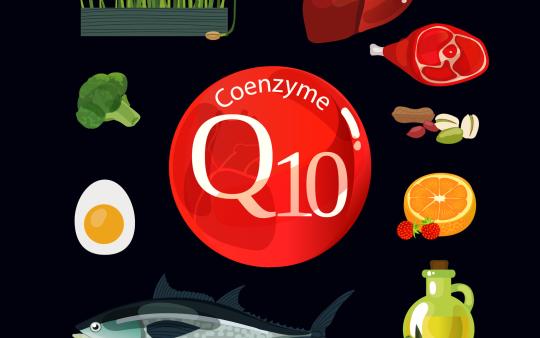When it comes to fertility all nutrients are important. They’re not only vital for your body to function properly every moment of every day, they are critical for building a baby! If you are looking to get pregnant in the near future there are a few nutrients you want to pay particular attention to which are commonly deficient in a diverse array of people. These include, but are not limited to, coenzyme Q10, vitamin D, and omega-3 fatty acids. This article, the first in a three-part series, will address coenzyme Q10.
Antioxidants to the rescue!
Coenzyme Q10, often referred to as CoQ10, ubiquinol, or ubiquinone, is a fat-soluble nutrient that acts as an antioxidant. Antioxidants inhibit oxidation, a process that causes free radicals to form. Free radicals scavenge the body to pair with other unpaired electrons, causing damage and disease. This nutrient is concentrated in the mitochondria, the powerhouse within a cell, where it helps the mitochondria pump out energy for your cells to perform vital functions, starting at the
Take care of your heart
Coenzyme Q10 is an especially important nutrient for heart health. The heart muscle itself requires so much energy to beat day in and day out that there are correspondingly large concentrations of mitochondria in heart muscle cells. You have probably heard of coenzyme Q10 being touted as a super nutrient for anti-aging due to its antioxidant effects and there have been many studies evaluating its effect on everything from athletic performance to neuro-degeneration. But fertility? You bet!
Energy for eggs
It turns out that the eggs in a woman’s ovaries also have large concentrations of mitochondria. She has had those eggs since she was a 16-week-old fetus still in her mom’s womb. Protecting those eggs from oxidation as well as providing the energy needed for monthly ovulation for so many years takes antioxidants and lots of energy. The mitochondria present in the unfertilized egg also play an important role in providing the energy required for the fertilized egg to implant. Emerging research shows that supplementing with CoQ10 may improve ovarian reserve (the reproductive potential based on the remaining eggs in the ovaries) and improve embryo quality.
Don’t forget those swimmers!
For men, sperm is highly susceptible to damage from free radicals. Free radicals can impair sperm count, quality, motility, and quantity. Again, CoQ10 is one factor that provides antioxidant power to those little swimmers. One study showed supplementing with coenzyme Q10 in men with unexplained infertility improved sperm concentration, motility, and shape.
Co-Q10 support for older moms
Unlike some other nutrients, our body can actually make CoQ10. But as we get older, coenzyme Q10 production and cellular concentration of this nutrient naturally declines. This could have an impact particularly on women looking to start a family in their late thirties or older. I often assess CoQ10 levels in my patients and find that levels are suboptimal or downright deficient. Though there is no standard daily recommended amount for either healthy people or those with specific health conditions, a reference range from Boston Heart Diagnostics suggests levels should be above 1.4 mg/L for adequate heart health support. Foods that are rich in CoQ10 include organically raised, grass-fed organ meats (think liver, kidney, heart), fatty fish (trout, herring, mackerel, sardine, and wild-caught salmon) and whole grains (the germ portion of the grain).
Get your daily dose
Coenzyme Q10 for fertility support is typically dosed daily between 200 and 600 mg in divided doses. Since CoQ10 is fat soluble, a liquid form or emulsified gel cap will improve absorbability when taken with food. There have been no significant adverse effects using high dose coenzyme Q10 (600 mg/day) for up to 30 months.
Remember no single nutrient is going to get you pregnant. It comes down to optimizing your and your partner’s health and providing the nutrients that support eggs, sperm, and the body that needs to nourish the embryo, fetus, and the growing baby after birth.
To further boost your preconception optimization, be sure to check out Part 2: Vitamin D for Fertility and Part 3: Omega-3 for Fertility of this series.
Further Reading
Kalén A, Appelkvist EL, Dallner G. Age-related changes in the lipid compositions of rat and human tissues. Lipids. 1989 Jul;24(7):579-84. PubMed PMID: 2779364.
Higdon, J. (2003). Coenzyme Q10. [online] Linus Pauling Institute.
Roberts, J. and Sinatra, S. (2014). The Sinatra Solution. Laguna Beach: Basic Health Publications.
Wagner, D. (2017) How to Improve Egg Quality: The Smart Way To Get Pregnant. Berlin.









